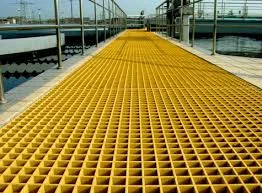
-
 Afrikaans
Afrikaans -
 Albanian
Albanian -
 Amharic
Amharic -
 Arabic
Arabic -
 Armenian
Armenian -
 Azerbaijani
Azerbaijani -
 Basque
Basque -
 Belarusian
Belarusian -
 Bengali
Bengali -
 Bosnian
Bosnian -
 Bulgarian
Bulgarian -
 Catalan
Catalan -
 Cebuano
Cebuano -
 China
China -
 China (Taiwan)
China (Taiwan) -
 Corsican
Corsican -
 Croatian
Croatian -
 Czech
Czech -
 Danish
Danish -
 Dutch
Dutch -
 English
English -
 Esperanto
Esperanto -
 Estonian
Estonian -
 Finnish
Finnish -
 French
French -
 Frisian
Frisian -
 Galician
Galician -
 Georgian
Georgian -
 German
German -
 Greek
Greek -
 Gujarati
Gujarati -
 Haitian Creole
Haitian Creole -
 hausa
hausa -
 hawaiian
hawaiian -
 Hebrew
Hebrew -
 Hindi
Hindi -
 Miao
Miao -
 Hungarian
Hungarian -
 Icelandic
Icelandic -
 igbo
igbo -
 Indonesian
Indonesian -
 irish
irish -
 Italian
Italian -
 Japanese
Japanese -
 Javanese
Javanese -
 Kannada
Kannada -
 kazakh
kazakh -
 Khmer
Khmer -
 Rwandese
Rwandese -
 Korean
Korean -
 Kurdish
Kurdish -
 Kyrgyz
Kyrgyz -
 Lao
Lao -
 Latin
Latin -
 Latvian
Latvian -
 Lithuanian
Lithuanian -
 Luxembourgish
Luxembourgish -
 Macedonian
Macedonian -
 Malgashi
Malgashi -
 Malay
Malay -
 Malayalam
Malayalam -
 Maltese
Maltese -
 Maori
Maori -
 Marathi
Marathi -
 Mongolian
Mongolian -
 Myanmar
Myanmar -
 Nepali
Nepali -
 Norwegian
Norwegian -
 Norwegian
Norwegian -
 Occitan
Occitan -
 Pashto
Pashto -
 Persian
Persian -
 Polish
Polish -
 Portuguese
Portuguese -
 Punjabi
Punjabi -
 Romanian
Romanian -
 Russian
Russian -
 Samoan
Samoan -
 Scottish Gaelic
Scottish Gaelic -
 Serbian
Serbian -
 Sesotho
Sesotho -
 Shona
Shona -
 Sindhi
Sindhi -
 Sinhala
Sinhala -
 Slovak
Slovak -
 Slovenian
Slovenian -
 Somali
Somali -
 Spanish
Spanish -
 Sundanese
Sundanese -
 Swahili
Swahili -
 Swedish
Swedish -
 Tagalog
Tagalog -
 Tajik
Tajik -
 Tamil
Tamil -
 Tatar
Tatar -
 Telugu
Telugu -
 Thai
Thai -
 Turkish
Turkish -
 Turkmen
Turkmen -
 Ukrainian
Ukrainian -
 Urdu
Urdu -
 Uighur
Uighur -
 Uzbek
Uzbek -
 Vietnamese
Vietnamese -
 Welsh
Welsh -
 Bantu
Bantu -
 Yiddish
Yiddish -
 Yoruba
Yoruba -
 Zulu
Zulu
pp frp tank
Understanding PP FRP Tanks Advantages and Applications
Polypropylene (PP) Fiber Reinforced Plastic (FRP) tanks are specialized storage solutions that have gained popularity across various industries due to their excellent durability, corrosion resistance, and lightweight nature. Composed of a combination of polypropylene and fiber reinforcement materials, these tanks offer a myriad of advantages, making them an ideal choice for storing liquids in both industrial and commercial applications.
What is PP FRP?
PP FRP is a composite material that combines polypropylene, a type of thermoplastic polymer, with reinforcing fibers, typically glass or carbon fibers. This unique blend enhances the mechanical properties and structural integrity of the tanks, resulting in a product that is both lightweight and incredibly strong. The properties of polypropylene help resist chemical attack, while the fibers provide added strength and resistance to impact and stress.
Advantages of PP FRP Tanks
1. Corrosion Resistance One of the standout features of PP FRP tanks is their resilience against corrosive substances. Unlike metal tanks that can rust or corrode when exposed to harsh chemicals, PP FRP tanks do not degrade, making them ideal for storing chemicals, acids, and other aggressive liquids. This property not only extends the lifespan of the tanks but also ensures safer storage solutions in chemical processing.
2. Lightweight and Easy to Handle PP FRP tanks are significantly lighter than their metal counterparts, making them easier to transport, install, and maintain. This lightweight feature reduces associated labor costs and simplifies the installation process, which is particularly beneficial in tight or remote locations.
3. Customizable Designs Manufacturers of PP FRP tanks can tailor the size and shape to meet specific requirements. This flexibility allows businesses to optimize their storage solutions based on the unique demands of their operations, whether it’s for large-scale industrial use or smaller-level applications.
pp frp tank

4. Thermal Insulation PP FRP has good thermal insulating properties, which helps to maintain the temperature of the stored liquids. This attribute is particularly crucial in applications where temperature control is vital for the integrity of the stored materials.
5. Low Maintenance Compared to traditional storage solutions, PP FRP tanks require less maintenance. Their resistance to corrosion and chemical damage means less frequent repairs, reducing long-term operational costs for businesses.
6. Environmentally Friendly PP FRP is a recyclable material, appealing to companies that prioritize sustainability. By choosing these tanks, businesses can reduce their carbon footprint and contribute positively to the environment.
Applications of PP FRP Tanks
PP FRP tanks find applications in numerous industries, including
- Chemical Processing Due to their chemical resistance, they are widely used in the storage of chemicals, acids, and other hazardous substances. - Water Treatment These tanks are ideal for applications in sewage treatment and water purification processes, where durability and resistance to bio-corrosion are crucial. - Food and Beverage Their ability to comply with food safety regulations makes PP FRP tanks suitable for storing liquid food products and beverages. - Pharmaceuticals The pharmaceutical industry benefits from these tanks as they can provide sterile storage conditions that are resistant to contamination. - Agriculture They are used to store fertilizers and other agricultural chemicals safely without the risk of leakage or contamination.
Conclusion
PP FRP tanks represent a significant advancement in storage technology, combining lightweight construction with high durability and corrosion resistance. Their versatility across various industries highlights their importance in modern operations. As businesses continue to seek reliable and efficient storage solutions, the adoption of PP FRP tanks is likely to increase, reflecting the ongoing trend towards advanced materials in industrial applications. By investing in PP FRP tanks, companies not only enhance their operational efficiency but also contribute to a more sustainable future.









